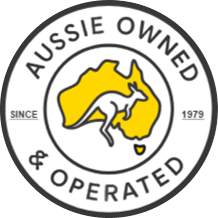- Get Extra
- Individuals
- Business
- Tools
- Tax Courses
- Contact
Budget 2021. What's Changed?
Monday, 17th May 2021
With the Federal Government recently announcing their 2021-22 budget many Australians are scrambling to figure out the potential impact to their back pocket. Luckily, our tax professionals are here to make sense of it all and have broken down the major tax related changes and what they could mean for you.
Increase to the Medicare Levy Low-Income Thresholds For singles, families and seniors and pensioners the government will increase the Medicare levy low-income thresholds from 1 July 2020. This means that most low-income taxpayers will continue to be exempt from paying the Medicare levy. The thresholds will be increased: Singles – $22,801.00 to $23,226.00 Families – $38,474.00 to $39,167.00 Seniors and pensioners (Singles) – $36,056.00 to $36,705, and Seniors and pensioners (Families) – $50,191.00 to $51,094.00 For families, the income thresholds increase by a further $3,597.00 (previously, $3,533.00) per dependent child or student. Low Middle Income Tax Offset (LMITO) The government has announced that the low middle income tax offset (LMITO) will be extended for the 2021-2022 income year. Low and middle income earners will receive tax relief of up to $1,080 depending on their taxable income If you earn: Up to $37,000 you will benefit by up to $255.00 Between $37,000 and $48,000 the offset will increase by 7.5 cents per dollar to the maximum offset of $1,080.00 Between $48,000 and $90,000 you will be eligible for the maximum offset of $1,080 Over $90,000 the offset decreases by 3 cents per dollar, until $126,000 at which the offset is $0. Self-Education Expenses In previous years, Australians have been unable to claim the first $250 of deductions for self-education expenses. The Government has now lifted this restriction, to simplify the tax return process and give students 100% of their deduction on qualified self-education expenses. Exemption for pay and allowances for Operation Paladin For the pay and allowances of Australian Defence Force personnel deployed to Operation Paladin from July 1st 2021, the Government will be providing full income and tax exemptions. Making Access to Superannuation more flexible Superannuation is a key feature of this year’s budget with three carefully targeted changes to ensure flexibility in contributions: Revoking the work test for those aged 67 to 74 Extended access to the downsizer contributions scheme Scrapping the $450 per month minimum threshold for SG contributions Relaxing super residency rules The government has proposed a relaxation of the residency requirements for self-managed superannuation funds (SMSF). Currently, all super funds must be Australian in order to accept contributions from members, however, this will now only be the case if: the fund is established in Australia or any asset of the fund is situated in Australia;the central management and control (CMAC) of the fund is ordinarily in Australia; anda level of active membership exists.Currently, the central management and control test is satisfied even if the fund is temporarily outside Australia for a period of no more than two years Temporary Full Expensing (Instant Asset Write Off) for Business Assets The government has announced that all depreciating assets, regardless of their purchase price will be able to be written off immediately. Businesses with an aggregated turnover of less than $5 billion now have the ability to deduct the full cost of eligible assets purchased by and for the business up to June 30th 2023. In previous years, this has been limited to assets valued under $30,000. Loss Carry Back – Business To help companies bounce back from COVID, the Government has announced that the temporary loss carry back measures introduced in the last Budget will be extended for a further year. This means that losses incurred up until June 30th 2023 can be carried back as far as the year ended June 30th 2019, with eligibility being limited to corporate taxpayers with a turnover of up to $5 billion. While there is no limit on the amount in losses that can be carried back, there are two limitations: Losses can only be carried back to the extent they offset previously taxed profits A franking account deficit cannot be generated Employee Share Scheme Change The Government has announced it will remove the ‘cessation of employment’ taxing point for tax deferred Employee Share Schemes (ESS). This will result in tax being deferred until the earliest of the remaining taxing points: in the case of shares, when there is no risk of forfeiture and no restrictions on disposal in the case of options, when the employee exercises the option and there is no risk of forfeiting the resulting share and no restrictions on disposal the maximum period of deferral of 15 years. These changes will apply to ESS interests issued on or after July 1st following the Governor General’s approval of said changes. Changes to Individual Residency Tests The Government has announced it will adopt the Board of Taxation’s recommendations to simplify the Individual Residency Tests. The proposed changes involve the adoption of a 2-step verification process. As part of the primary process individuals will be deemed an Australian Tax Resident if they have been physically present in Australia for a minimum of 183 days. Failing this, the individual will need to test whether they are a continuing resident or commencing residency. The secondary rules set out to determine when an individual, who is in Australia for less than 183 days in an income year, commences or ceases residency. These secondary rules involve four objective factors of which only two need to be satisfied for an individual to be considered an Australian tax resident. These are: (a) The right to reside permanently in Australia (including citizenship and permanent residency); (b) Australian accommodation; (c) Australian family; and (d) Australian economic connections For the full budget overview visit budget.gov.au. For more information on how our tax professionals can help you navigate these changes to maximise your tax return this year, book an appointment with your nearest office today.

